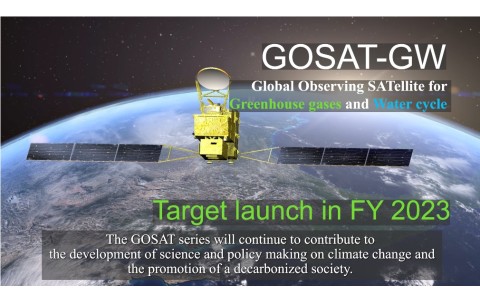GOSAT Series Project
Technology / Service Summary
The GOSAT Series is a series of satellites aiming to observe greenhouse gases from space. Since the launch of GOSAT in 2009, we have provided long-term CO2 and methane concentration data.
Purpose
The primary objective of the GOSAT Project is to enhance the precision of estimating global greenhouse gas emissions and absorptions. It also aims to support environmental administration in assessing the carbon balance of terrestrial ecosystems and making regional emissions and absorptions assessments more accurately. By analyzing the GOSAT data, scientists aim to gain insight into the global distribution and temporal variation of the greenhouse gases, as well as their impacts on global carbon cycle and climate. These discovers will help us to predict future climate and evaluating their consequences. In addition, the Project aims to expand existing earth observing satellite technologies, develop new methodologies for greenhouse gas measurement, and promote technological development necessary for future earth-observing satellites.
Feature
GOSAT and GOSAT-2 data are freely available on the following website;
https://data2.gosat.nies.go.jp/index_en.html
https://prdct.gosat-2.nies.go.jp/index.html.en
Effect
Controlled Substance
Reference
Applicable Regions / Countries
- Japan
- Southeast Asia
- Central/South Asia
- China/ East Asia
- Middle East
- Africa
- Oceania
- Europe
- Central/South America
- ASEAN countries
Indonesia,Cambodia,Singapore,Thailand,Philippines,Brunei Darussalam,Viet Nam,Malaysia,Myanmar,Lao PDR
Reference URL
Related SDGs Goals
- 13. Climate Action




